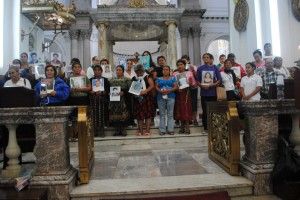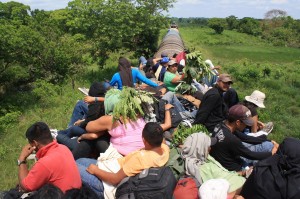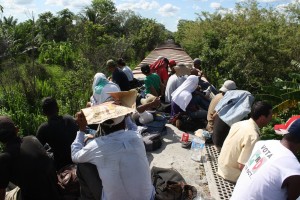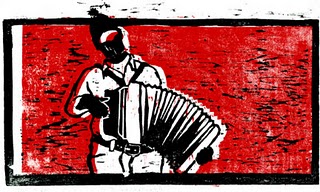Sorry, this entry is only available in Español. For the sake of viewer convenience, the content is shown below in the alternative language. You may click the link to switch the active language.
“Liberando la Esperanza”

México Distrito Federal a 13 de octubre, 2012.- COMUNICADO DE PRENSA
Nos vamos ya rumbo al Sureste mexicano a recibir a las madres centroamericanas. Vamos cargando con papeles, lonas, gorras, camisetas, gafetes y sueños. Soñamos que las ayudaremos a cumplir su más caro deseo de encontrar a esos seres queridos que salieron un día en busca de la vida y de ellos no se supo mas.
Llegarán a El Ceibo, Tabasco el día 15 de octubre a las 9:00 de la mañana, procedentes de El Salvador, Nicaragua, Honduras y Guatemala, de donde partieron el 11 del presente en caravana, para recorrer parte de la ruta migrante de México. Las alimenta la esperanza de encontrar a sus hijos. Se invita a los compañeros de los medios de comunicación a que acompañen a estas madres en su viaje de 19 días por 23 localidades de 14 estados de la república mexicana.
Recibirán de entrada el abrazo de la Fiesta a la Esperanza que en homenaje a las a las víctimas de la violencia de Estado, organiza Fray Tomas en el albergue para personas migrantes “LA 72” en Tenosique y que como colofón irán a la frontera México-Guatemala a dar un gran abrazo a las madres centroamericanas compartiendo la premisa del evento “Todos los dolores, todas las luchas, toda la rabia, toda la esperanza”.
Durante esta caravana, tendremos el enorme placer de ser el instrumento de reencuentro de 4 madres con sus hijos: a partir de la caravana del 2011, siguiendo las pistas que se encontraron, Rubén Figueroa del MMM, se dedicó a recorrer los lugares indicados y su empeño dio frutos: cuatro de ellos fueron identificados como familiares que se venían buscando en la caravana y que recompensan el enorme esfuerzo que realizan estas mujeres que teniendo muy poco, no dudan en salir de sus pueblos en busca de sus hij@os. Las madres son ejemplo de lucha través del tiempo.
La agenda que se incluye, da cuenta de la gran cantidad de actividades planeadas a realizarse en las paradas estratégicas de este recorrido, actividades propuestas e instrumentadas por una gran cantidad de actores locales que nos muestran el espíritu solidario y generoso que las madres incitan
entre una muy variada cantidad de personas, grupos, instituciones, académicos, organizaciones y defensores de derechos de los migrantes y de los derechos humanos de todos y todas.
“Todos los dolores, todas las luchas, toda la rabia, toda la esperanza”









